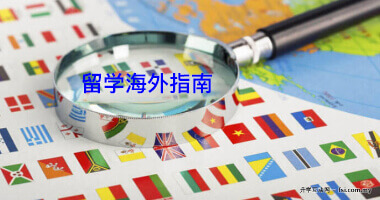When the unprecedented Covid-19 pandemic hit, many were caught unaware and unprepared. The confusion and uncertainties had driven many people to respond to the crisis. UTAR Faculty of Arts and Social Science (FAS) academic Assoc Prof Dr Cheah Phaik Kin and her teammates sprang into action, initiating a collaborative study to investigate what impacts the pandemic had on people.
The team of 23 researchers spent two months, from 1 May to 30 June 2020, collecting data from more than 5,000 respondents across five countries. Their efforts came to fruition when their paper, Economic and social impacts of COVID-19 and public health measures: results from an anonymous online survey in Thailand, Malaysia, the United Kingdom, Italy and Slovenia was published recently in BMJ Open, an online open access journal, dedicated to publishing medical research from all disciplines and therapeutic areas, with an impact factor of 2.692.
The aim of the research was to understand the impacts of Covid-19 and public health measures on different social groups. They conducted a mixed-methods study (‘SEBCOV—social, ethical and behavioural aspects of Covid-19’) among 5,058 respondents from Thailand, Malaysia, the UK, Italy and Slovenia.
The data showed that Covid-19 and public health measures have uneven economic and social impacts on people from different countries and social. Among the five countries, respondents from Thailand were most affected economically while Slovenian respondents were the least. The following factors were associated with greater negative economic impacts: being 18–24 years or 65 years or older; lower education levels; larger households; having children under 18 in the household and having flexible/no income. Regarding social impact, respondents expressed most concern on their social life, physical health, mental health and well-being. There were large differences between countries in terms of voluntary behavioural change, and in compliance and agreement with Covid-19 restrictions. Overall, self-reported compliance was higher among respondents who self-reported a high understanding of Covid-19. The UK respondents felt that they were able to cope the longest and Thai respondents the shortest with only going out for essential needs or work. Many respondents reported seeing news perceived to be fake, the proportion varying between countries, with education level and self-reported levels of understanding of Covid-19.
“As researchers, our job never ends. The whole team came together because we were keen to understand the social, ethical and behavioural impact of Covid-19 public health measures on people’s lives. This study was conducted relatively early in the pandemic in response to an urgent need for information. This pandemic is unprecedented. Therefore, no one was really sure what was happening and what to expect. So as researchers, we tried to do what we can, using the expertise that we have to help the situation. So, we collected data to try to gain some insights into the impact public health measures that governments around the world were taking,” Dr Cheah said.
She added, “The whole team came together in just a few days and started brainstorming. As researchers and scientists, we had to do what we can and shoulder some responsibility in addressing a crisis that involved the whole world. We knew that this investigation was needed to find out the impact of non-pharmaceutical interventions such as lockdowns, and how people perceive the situation. This information is very important to help decision-makers understand the impact of the public health measures that governments have implemented. Different segments of the population have different perceptions and experiences. We would like to make our research findings widely available by publishing them in this journal so that it is accessible to everyone who needs the data.”
“Another effort that we made was to publish the preprint in October 2020 while we waited for the report to be peer-reviewed by the journal. In this urgent situation, this initiative was more important than ever because it made the report and data available as soon as it was ready to enable people to access the information to help fight the pandemic.”
She explained, “This study is significant because it contributes to the achievement of the United Nation’s Sustainable Development Goal 3 – Good Health & Well-Being. Findings from this investigation can be used to inform healthcare administrators and governments so that they are aware of the impacts of these public health measures, and negative impacts can be minimised. Any knowledge that we have about the pandemic is helpful. We found that Covid-19 public health measures have unequal impacts on different social groups. Our data will contribute to the evidence that we need to make informed decisions in the next waves of the pandemic and future pandemic.”
Dr Cheah also said the team is greatly indebted to the respondents without whom this would not have been possible. This research was funded by Wellcome Trust Institutional Translational Partnership Award (iTPA), Thailand (210559), and Wellcome Trust Strategic Award (096527). The Mahidol Oxford Tropical Medicine Research Unit was funded by the Wellcome Trust (106698 and 220221). This study was also supported by the Sonar-Global project which has received funding from the European Union Horizon 2020 Research and Innovation Program (825671). The research programme in Slovenia was funded by the Slovenian Research Agency (Javna agencija za raziskovalnodejavnost RS) (P6-0279).
Online Education Fair 线上教育展
Universiti Tunku Abdul Rahman (UTAR)
拉曼大学
https://edufair.fsi.com.my/utar













